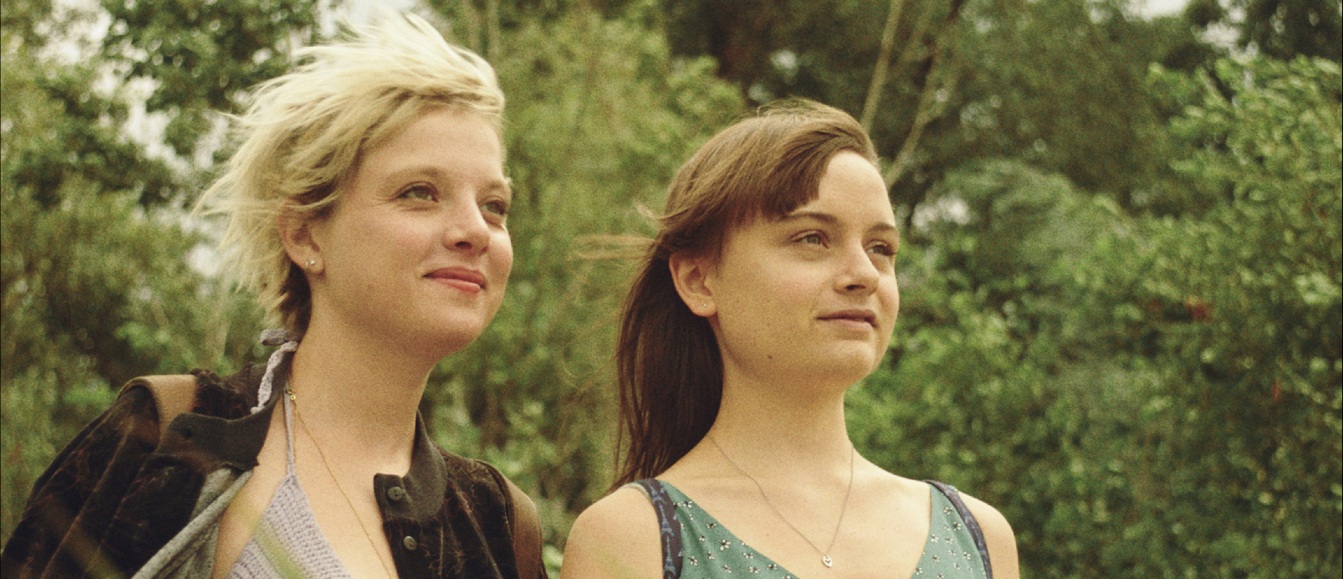Cocoon Review
By Lydia Rostant
28 July 2021
Coming of age – re-writing the canon with Cocoon

Cocoon (2020)
Leonie Krippendorff’s 2020 film Cocoon is a masterclass in compassionate filmmaking. Set in contemporary East Berlin, in the multi-cultural Kreuzberg, the film follows 13-year-old Nora (Lena Urzendowsky) as she navigates a long, hot summer of firsts. She is flanked by her older sister Jule (Lena Klenke), and Jule’s pack of vivacious friends who switch between jocular camaraderie and casual cruelty. Her attention is snagged by the new girl in class – the assertive and changeable Romy (Jella Haase), and the two encounter their first, racing moments of mutual desire.
There’s a compelling, can’t-look-away quality to portrayals of adolescence that is apparently evergreen and draws directors and spectators alike. Krippendorff’s Cocoon places an unflinching faith in its protagonist Nora – meaning everything is distilled through her subjectivity rather than augmented through a watchful, parental viewpoint. In an interview, second-time director Leonie Krippendorff said that she wanted to portray a ‘story [that] is told out of the stomach rather than out of the head. Nora is constantly aware of her changing body, and by extension, the viewer is too. Towards the beginning of the film, she plays a drinking game with some of Jule’s older friends. The rules are abstract, but the objective strikingly clear (and familiar to many) – to inflict physical pain under the guise of fun; a central and inexplicable tenet to many adolescent experiences. Nora is hurt by one of the older boys and her pain fills the shot – her face contorted by the joint impressions of pain and shame. In this instance, Krippendorff deftly demonstrates the kind of watchful, empathetic and bodily filmmaking that distinguishes Cocoon from the mainstream trope of teenage movies.
It matters enormously that Krippendorff doesn’t burden her characters with immense romantic notions, instead allowing the pitfalls and betrayals of adolescence to unfold with impunity under the guidance of a sensual, tactile camera. In an industry where the notion of ‘first-love’ seems to exist as a form of emotional racketeering, Krippendorff’s authentic portrayal of first -infatuation is refreshing. Her work reminds us that our teenage years are often less about the whirlwind of peripheral events around us, and more about the intense relationship with our changing bodies, and our untapped desire to be seen for who we are and who are becoming. It’s no mean feat to pull this off in a film that still feels stylish, nuanced and effortlessly entertaining.
With its tender, uncompromising focus on the complexities of adolescence and desire, Cocoon joins the likes of Eliza Hittman’s It Felt Like Love, Celine Sciamma’s Water Lillies, Shannon Murphy’s Babyteeth and Cate Shortland’s Somersualt, as films that uphold and prioritise a cinema of ‘feeling’ over that of ‘looking’. There’s never been a more exciting time to be a teenager on screen, liberated from archetype and for perhaps the first time ever, truly seen.




